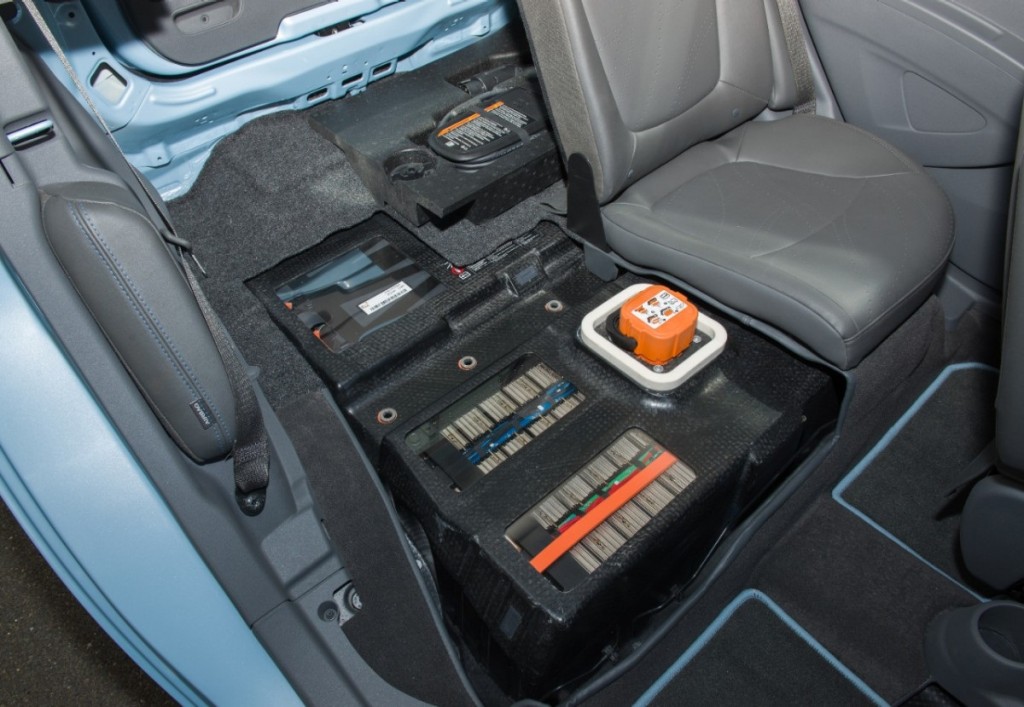Ten years ago, lithium-ion cell maker A123 Systems was a hot startup and a much-publicized company.
This author, in fact, profiled the company for IEEE Spectrum in the technology magazine's September 2007 issue.
The six years that followed proved enormously painful for the Massachusetts company, however.
DON'T MISS: A123 Systems To Recall Electric-Car Battery Packs For Fisker, Others (Mar 2012)
A high point was the announcement that A123 was one of two finalists in the "bakeoff" competition held by General Motors to select a battery supplier for its upcoming 2011 Chevrolet Volt.
While A123 lost that competition to Korean cell-maker LG Chem, it got something of a consolation prize: its cells were used in the low-volume Chevrolet Spark EV electric minicar instead, as well as some low-volume German luxury hybrids.
High-profile startup Fisker Automotive also chose A123 to supply the cells for its Fisker Karma plug-in hybrid luxury sedan.

Lithium-ion battery pack for 2014 Chevrolet Spark EV electric car
In the end, that proved the company's undoing. The factory it set up to fabricate those cells in Livonia, Michigan, produced a run of unreliable batteries that required the pack fitted to every early Fisker Karma to be swapped out and replaced under warranty.
The problem came to light in perhaps the most embarrassing way possible: a Karma being tested by Consumer Reports died during during testing on the magazine's own test track.
In the end, both Fisker and A123 declared bankruptcy—and were separately purchased by Wanxiang, one of China's largest auto-parts makers.
And little more was heard of A123 in North American media thereafter.
But as Alysha Webb points out in a post last week on her ChinaEV blog, A123 has thrived under its new owners. (Webb's post is worth reading for Forcier's observations on Chinese lithium-ion cell makers.)
Current CEO Jason Forcier tells Webb that since a reorganization in January 2013 following its acquisition by Wanxiang, A123's revenue has grown from less than $100 million to almost half a billion dollars this year.

2017 Karma Revero
One reason the company's profile is lower now is that fully half its production goes not to plug-in electric cars but to 48-volt start-stop systems, primarily supplied to Chinese makers.
While start-stop systems are only now arriving in significant numbers of vehicles sold in North America, they've been standard in Europe for most of a decade now, and growing rapidly in China as well.
Given that country's stringent fuel-economy mandates for future years, Forcier says, start-stop systems will likely be required on all vehicles to keep them in line with China's carbon-emission reduction efforts.
CHECK OUT: What's Next For Chinese-Owned Battery Maker A123? (Nov 2013)
For the moment, A123's only major cell buyer for plug-in vehicles is the former Fisker, now renamed Karma Automotive—and, of course, owned by the same parent company.
The updated vehicle, now known as the 2017 Karma Revero, is just now rolling into dealerships, though volumes for the six-figure luxury sedan will be low.
General Motors, on the other hand, stopped using A123 cells for its Spark EV and replaced them with LG Chem cells, an unusual move for a low-volume compliance car.
_______________________________________













